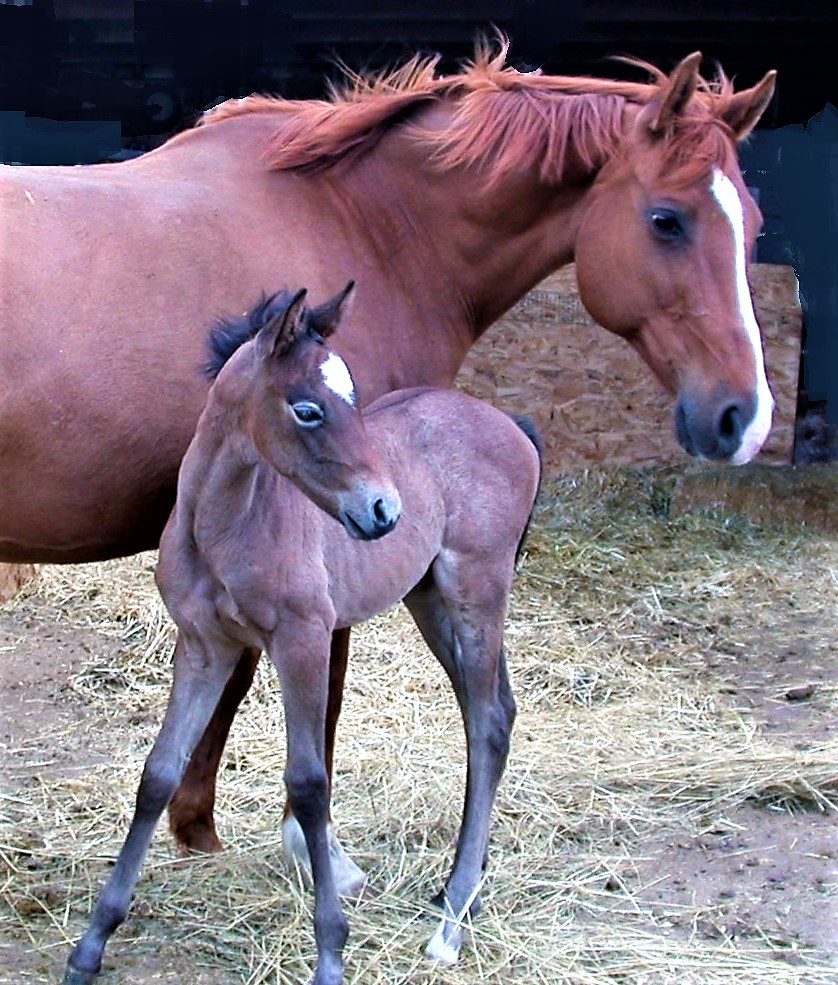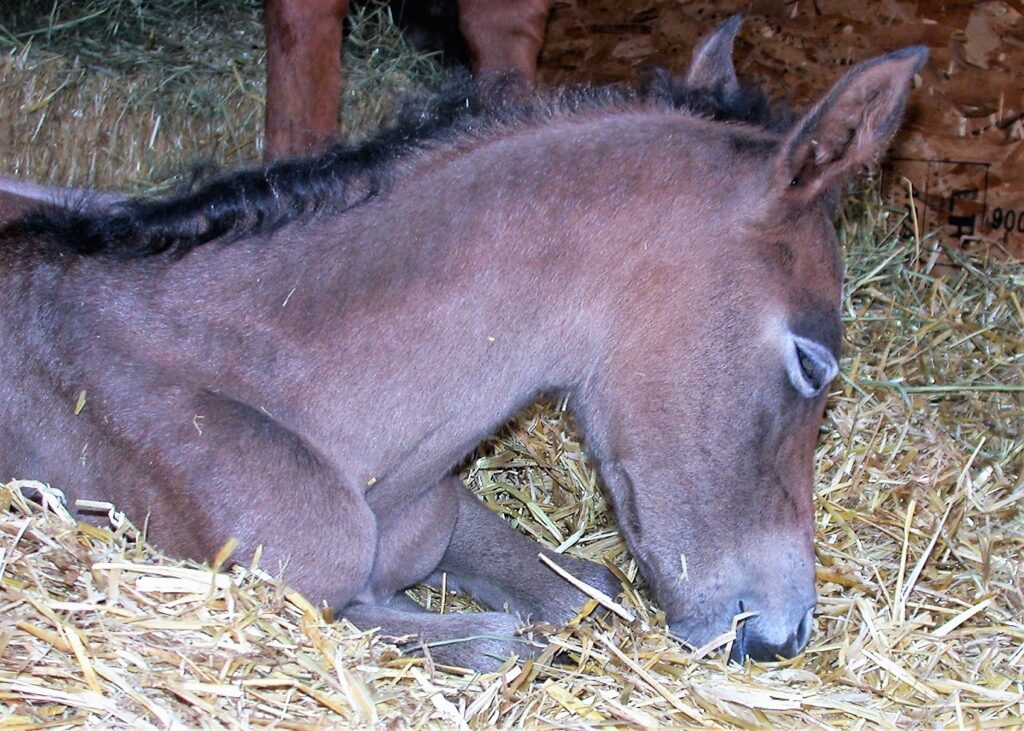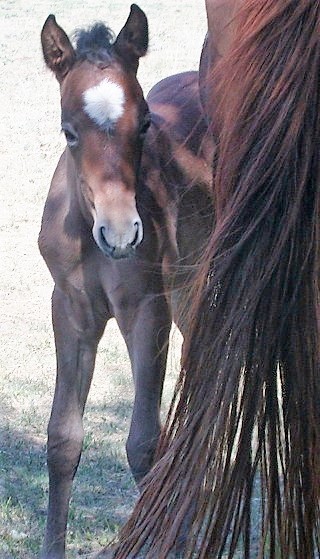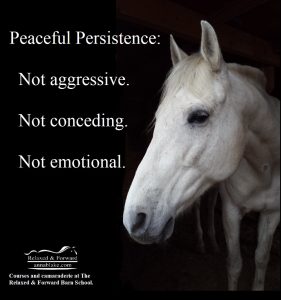
Another story of cruelty hit the international press last week. Operation X documented horrors happening in a well-known Danish barn, by using an undercover “groom” with a hidden camera. I won’t relate the gory details because you already know them. They are as nasty as you imagine. Repeating them feels like profanity. It was a dressage competitor this time, the riding discipline people love to hate. Also, the best foundation for any riding horse, so I will stand up, unwilling to surrender my beloved sport over to the haters. Want to know what real dressage is? Xenophon in 350 BC:
For what the horse does under compulsion, … is done without understanding; and there is no beauty in it either, any more than if one should whip and spur a dancer.
Please stop confusing dressage with cruelty. They are mutually exclusive. What happened at that barn was not dressage.
The story broke on the anniversary being roasted for an essay I wrote against (among other things) spade bits, comparing their use to the other kind of “grooming”. One comment I read about this latest cruelty compared this barn’s practices to priests abusing children. Good for her. Speak bluntly. Be as loud as abuse is damaging, but brace yourself for blowback. We love our traditions.
It’s only fair to mention other riding disciplines with systematic training methods used by a few cruel members. Like Western Pleasure, reining, gaited horses, rodeo, Big Lick Tennessee Walkers, the racing industry, etc, etc, etc. And doping happens in all of them. But why stop there? Include hoarders who masquerade as rescues and perpetrators of kill pen scams. Pinned ears on liberty horses and dead-eyed lesson horses. Shut down over-used therapy horses, and the cruelty done by cute kids riding big horses in strong bits. Colt starting competitions where more emphasis is put on showmanship than horsemanship. We romanticize punitive training to the point of hero worship. Wake up!
A reminder: we abuse dogs, too, but they yelp and howl. Horses are silent, unless we see the blood. Horses need advocates to speak for them.
 Here’s the true epidemic: we start youngsters with fear-based methods that have been scientifically debunked for decades. Domination isn’t the rule of the herd, we had it all wrong. Why do we still think the horse with the most anxiety is the “alpha”? We evolved our understanding of herd dynamics. This outdated method of waging war on babies is reprehensible. Even if the stoic ones will fake it for a while, a horse trained with fear will never be reliable. When do we open our eyes to change?
Here’s the true epidemic: we start youngsters with fear-based methods that have been scientifically debunked for decades. Domination isn’t the rule of the herd, we had it all wrong. Why do we still think the horse with the most anxiety is the “alpha”? We evolved our understanding of herd dynamics. This outdated method of waging war on babies is reprehensible. Even if the stoic ones will fake it for a while, a horse trained with fear will never be reliable. When do we open our eyes to change?
I swear, we have become so blind to cruelty, so normalized, that it’s like we have Stockholm syndrome (a bond between the abuser and the victim.) The defense most often stated by domination trainers was that their methods or painful tack are a time-honored tradition. We agree on that! Abusing horses is as old as Xenophon or we wouldn’t have that quote.
But wait! This is the extreme minority of horse owners.
Consistently being a bully is a sign of weakness, lack of education, inability to be flexible, and a void of creativity. How is it that a human tantrum passes as a training technique? Sure, we all have bad days when we get frustrated or rushed. The process of learning isn’t always smooth. In my work, I only see caring horse people who are trying to do better for their horses. Never monsters.
Cruelty makes for dramatic, attention-getting videos. Watching the slow gradual way that I train even bores my clients. If someone put an undercover spy in my barn, I’d find them snoring in the hay, sleeping off a hangover. But don’t assume I’m permissive, allowing horses to be dangerous, or that serious training isn’t happening. Working to rehab horses who got a rough start requires patience. We’re advancing the horse’s confidence as well as their ability. It’s not as easy as scaring them into submission.
Some say dressage, (or any other discipline,) is hard work that has to be trained harshly. As if any backyard horse can’t piaffe their way back to the barn. Separation anxiety isn’t dressage either. But instead of banning riding disciplines, let’s take them back. For all that we owe horses historically, and knowing more now, we can do better.
But if you want to complain, then you must also cheer the good guys. The monster in the Operation X video has been banned, the world is outraged. But the riders winning lately are training very differently. The British Dressage team posts photos of their elite horses in turnout with other horses as soon as they return home from international competitions (that they have just won.) Knowing how easily your rescue horse can hurt himself standing in your barn aisle, think of the commitment to welfare this alone takes. Could we at least give them a golf clap?
 Horse training is an art. It’s supposed to be hard. Using methods or training aids that make it faster or easier for us shouldn’t be the goal. Trust isn’t that cheap. We should stretch our skills and continue to learn. Take riding/training lessons from a good instructor. If they are harsh, walk away and find another. Attend clinics where your horse’s mental health is prioritized.
Horse training is an art. It’s supposed to be hard. Using methods or training aids that make it faster or easier for us shouldn’t be the goal. Trust isn’t that cheap. We should stretch our skills and continue to learn. Take riding/training lessons from a good instructor. If they are harsh, walk away and find another. Attend clinics where your horse’s mental health is prioritized.
Understanding equine calming signals is the biggest benefit to horses I know. We’ve been told to listen, but what do we listen for? Most of us are certain we understand equine body language, but sorry, horses would disagree.
Is that the problem? Have we seen their fear and pain for so long it looks normal to us?
Stop listening to the press. Stop courting the opinions of those who have never ridden, and those who train with intimidation. (It works as well on us as it does on horses.) We need to be open to change when we don’t like change. Spend silent time with the herd. But empty your mind first. Make your eyes brand new, make no excuses. Let all emotion go still. Give the horse space and air, rest your voice. When they feel safe, they will tell you in their bodies how they were trained and what they remember. We are not the judges of cruelty; they are.
It’s a good time to clean out the tack trunk. Make a pile of things that cause pain or the fear of confinement. Training “aids” like draw reins, tie-downs, and gadgets that restrain. Toss any but the most gentle snaffle bit. No more whips or weapons. Don’t sell them, so other horses suffer. Throw them out, and for once, be glad of waste.
If your horse gives you some resistance or needs some energy, then change your own energy to something brighter. Once and for all, commit to dive deep into the power of breathing as an affirmative cue. Be the change you want to see in your horse. If you don’t believe it will work, try it anyway. Let your horse change your mind. Will it take time? Yes, because horses expect the worst from us. Let’s disappoint them on that count.
Then speak up about how well your horse is doing. Pride isn’t the same as bragging and the mean minority is ruining it for the rest of us. Let people see that affirmative training methods work. Let your progress wear down the railbirds until they become impressed. It’s time to stop complaining on social media, amplifying the worst. Instead, speak up for kind training every chance you get. But for crying out loud, write letters to the FEI, USEF, NRHA and other equine governing bodies and let them know how you feel. They can’t ignore all of us.
Want the numbers? Women own over 90% of the horses. In total, that’s about two million American horse owners and over seven million people engaged in the industry as owners, service providers, employees, and volunteers. Most of us are forty-ish with a median income of $60k. We are the silent majority. Our voices can bring the haters to heel.
We claim we love horses and that should mean not just our own. When do we stop offering sad “thoughts and prayers” and get loud? When is it time to stop standing around clutching our bloody pearls? Who else do we think is going to fix this mess?
…
 Available Now! Undomesticated Women, Anectdotal Evidence from the Road, my new travel memoir. Ride along with us on a clinic tour through 30 states, 2 oceans, and 14k miles with me and my dog, Mister. It is an unapologetic celebration of sunsets, horses, RV parks, roadkill, diverse landscapes, and undomesticated women. Available now at Amazon, Barnes and Noble, and signed copies from me.
Available Now! Undomesticated Women, Anectdotal Evidence from the Road, my new travel memoir. Ride along with us on a clinic tour through 30 states, 2 oceans, and 14k miles with me and my dog, Mister. It is an unapologetic celebration of sunsets, horses, RV parks, roadkill, diverse landscapes, and undomesticated women. Available now at Amazon, Barnes and Noble, and signed copies from me.
…
If you or your horse appreciate what I write, please Subscribe to this blog or join us at The Barn School. To follow Bhim’s Training Diary, click here.

Want more? Become a “Barnie.” Subscribe to our online training group with affirmative demonstration videos, audio blogs, daily quotes, free participation in “group lessons”, and live chats with Anna. Become part of the most supportive group of like-minded horsepeople anywhere.
Anna teaches ongoing courses like Calming Signals and Affirmative Training at The Barn School, along with virtual clinics and our infamous Happy Hour. Everyone’s welcome.
Visit annablake.com to find archived blogs, purchase signed books, schedule a live consultation, subscribe for email delivery of this blog, or ask a question about the art and science of working with horses.
No golf clap here, I would be the one clapping so loud my hands go numb, whistling and yelling bravo!
Amen, and I do know that. There are some great things happening in dressage right now. It would be a shame to miss that.
Yes, the dark period of the 90’s and early 2000’s has passed and the good guys are winning again! The bad actors are being called out! One can only hope that becomes the case in all horse sports and disciplines.
WELL SAID! Every word. Thank you.
Thank you, Katherine
Dont want to see what was done in this barn – I can visualize it well enough. The person who commented that this compares to the abuse of children by priests was right on point. Every single discipline with animals (horses, dogs all of them) and any “sport discipline” with children (i.e., gymnastics?) has its share of abuse and unless we make sure the light shines brightly upon them, there will be no changes, nor punishment to the responsible people.
Your essay was likely a “hummer” Anna – stirred up some people guilty of that kind of abuse – well tough s__t!
If there is a way to gain power or money by abuse – someone will. Its up to the rest of us to speak out when we see it.
Anna always does that!
Money wins, animals lose. Thinking about the abuse in gymnastics makes me want to rant some more. But we can change this. Thanks, Maggie
Just like schools should place less emphasis on correct answers and more on asking questions because getting the right answer leads to all manner of pathologies, humans get conditioned to seek the blue ribbon endorphins, but our blue ribbons are given for the wrong thing or the givers have changed the requirements.
I so agree. Thanks Kim.
What an idea!!! Certainly would change some of the dynamics in our education system wouldnt it?
This was wonderful! Thank you. I quit taking lesson with a certain group of ladies from the instructors they might set up clinics with because she was just too harsh. In the lesson I just wouldn’t do what she was asking. It was too much for my horse and I saw it was too much for their horses, but they wanted to win.
Great comment. But they didn’t win… your horse did. Thanks Virginia. (It’s a treat to see kind training win medals in Dressage.)
“It’s a good time to clean out the tack trunk. Make a pile of things that cause pain or the fear of confinement. Training “aids” like draw reins, tie-downs, and gadgets that restrain. Toss any but the most gentle snaffle bit. No more whips or weapons. Don’t sell them, so other horses suffer. Throw them out, and for once, be glad of waste.”
This is something I’ve been thinking about for a couple of years. I’ve thought of turning equipment I bought in a misguided moment into a barbaric art statement piece, though I probably never will.
Barbaric art indeed! Good thinking, Linda.
Hold up a minute! I do know someone who is versed in metal work …
please do! swords into sculpture!
Bravo! I believe anger is our signal that something is wrong, but that action must take its place or it sours into something useless at best, destructive at worst. I am going to invite the members of my FB horse group, now numbering almost 500, to a demo seminar on training that honors the horse and is based on consent. That might ruffle some feathers in the Cowboy Capital of the World but I’m not going to insist that they listen lol 😂
It takes hearing things a few times before we change usually. Time to start. Thanks, Susan
keep us posted. great idea!
Bravo Anna! Comforting yet disturbing.
I love your books!
Thank you!
Thanks, Sharon. Advocating isn’t fun… But thanks for liking the books. Take care.
Anna. Just thanks, as always. I will write today. We do have to take action. We ladies must have speak up and out for the horses. Enough is enough. I did email an editor at the Washington Post the link to one of the articles about this. Doubt it will go anywhere. Agree that dressage can be a beautiful thing and great for the horse when done correctly. No more harsh aids in ANY discipline. It sickens me to think that we have become desensitized to cruelty. When and how do we take action against it? I see much of it and say nothing (just the small things, but bad all the same. The small things matter). Shame on me. That has to change, even if I hurt or offend a person. We have to speak for those who cannot. I am just so sad about it all. And why does it happen? For the sheer pleasure of the human. The money, the wins, the vanity. No concern whatsoever for the animal. Disgusting.
I see so many positive changes. Those winning at dressage are wonderful. It is slow, but we are not alone. Thanks Kathy
Anna, I had the good fortune of first engaging with horses in my forties. By then, I had seen enough cruelty in our world that I had precious little tolerance for cruel treatment of any living being. I actually fired a farrier before he ever laid a hand on my first horse when I saw the farrier roughly handling another horse a the barn that I was boarding at. I have to admit that I have missed opportunities to speak out about other’s horses on occasion, for which I am ashamed, but I am committed to continuing to fight the good fight going forward. Knowing that there are many of us out there doing the right thing gives me comfort. Thank YOU for all you do.
Yes, a long road behind me, too. But easier than it used to be. Thanks for what you do, Laurie. We are not alone.
Thank you, Anna. This is a great reminder to us not to stand by silently if we see someone treating a horse, or any living creature, with cruelty.
It’s not always easy to speak up, but harder to be silent. Thanks Lynell.
‘Harder to be silent.’ So true.
Anna, I tried to post another comment because a question came to mind while reading this piece, but clearly I forgot to hit the post button. My current group of horses has caused me to wonder who is really the leader in terms of keeping the herd safe. Is it the horse that is dominant over resources or is he just so anxious that he bullies others away from the resources and doesn’t have herd safety in mind at all? I would love to have a better understanding of herd dynamics. Would you consider writing about this or hosting a happy hour discussion?
Oh goody, what a great topic. I might do both!! Thanks Laurie!!
Bravo Anna!
👏👏👏👏👏
Thank you, Megan
I am going to say something weird and probably unpopular here because I feel that this space is safe enough to say it. I don’t feel any connection whatsoever to people who abuse horses (through training or otherwise) nor any need to try to change anything. It is pathological behavior and my limited experience with psychopaths is that you are best staying out of their way and not wasting any energy whatsoever on them, because you won’t change them. I work in the rescue community to help horses and that’s it; no grandstanding. Of course dressage isn’t abuse; abuse is abuse. The only analogy I can think of is the institution of marriage. Domestic violence happens but it’s not because someone is married. It’s because someone is abusive. And I doubt very much that going around loudly showing people a better way of being married would change anything at all for the ones who abuse and the ones who suffer. There are already countless examples of extraordinary horsemanship in the world for those who wish to train with compassion. I have had the great privilege to learn from Anna and other world-class t teachers. But my relationship with my horses is so intimate and private I can’t imagine trying to prove anything with it. Just like we don’t or shouldn’t get married just to try to prove something to the world or change people’s minds. If someone accidentally gets sucked into abusing their horse because someone told them “that’s the way it’s done”—I suppose that happens but I steer so clear of those types of scenarios—they might benefit from quiet examples of a better way, but otherwise the awakening they need must come from within. As for showing and competition, again I don’t why people do it, for me it would be like trying to have a marriage competition. I’m struggling to find words for this. I don’t mean to offend. I think maybe what I’m trying to say is, if things are going well with your horses, protect that—don’t bring it out into the world as some kind of example or to be judged; it will get degraded. I feel like Anna having even to address this is degrading her message, which so transcends the minor and major atrocities committed elsewhere in the horse world as to exist in another universe entirely. I don’t want the two worlds to touch each other. It hurt to read this. With apologies for being so blunt and quite possibly wrong.
Thank you for this comment, Karen. I appreciate your thoughts. If what I do is grandstanding, then I accept it. As I wrote in my book, I’m not born to it but I will continue to advocate because I can see the impact it has. Not everyone who gets a horse knows there are kinder ways and most of us at a certain age got started with horse in those violent ways. I certainly didn’t know better back in the day. I am glad that you are free of that. It’s my job to train, the hardest and most rewarding job of my life.
I kind of love that you compare it to marriage, it is an interesting analogy. Some of my best horse days were competing… but using your analogy, I’d call it going on a wonderful trip with the love of my life. I’m sure others where there, but we only had eyes for each other.
Again, thank you.
In my opinion, there will be no “awakening from within” for abusers, be it marital, child, animal abuse, or other. In my opinion, there needs to be an abrupt awakening from WITHOUT, which is where community comes in. The spouse, the child, the animal, don’t have time to wait for an enlightening from the abuser.
I applaud you for all of this! i had a quiet laugh when you said “share how well your horse is doing”. I only hang out with people who work with horses in ways I feel good about. We don’t have to agree on every little detail. Though with my closest friends, this just happens to be true. So, when I had a breakthrough with the horse I mentioned before, a 17 yo stuck emotionally at about 2, with no clue people had the ability to be trustworthy, I called my friend, all excited. “He called me mom today!”
We both cracked up at the joke. (Not his mom) She knew exactly what I meant. “Let me have it!” She said.
“He got bored when I asked him to stand still for a few minutes, and nipped me to get me to move.”
Classic thing babies do with their moms.
Is it ok for a horse to bite? No. Was I going to let him have it for biting me? No. He just showed more trust than I thought he was capable of. He was brave enough to say “I’m unhappy with this.” Takes a lot of trust for a formerly abused horse to tell you they are bored! I gave him the mare stare, and tapped his muzzle with my finger. It didn’t scare him, but he got the message, settled down, stood still for the few minutes, and didn’t try again. So….I wanted to shout it to the rooftops! 😆😆. Another horse, another situation and that would not have been the right correction. But he’s fragile. Better to say no quietly and calmly, like a good mare, than scare the bejesus out of him with a round smack and threaten the thread of trust he built. Lol, that is my how well “my” horse is doing story. I also laughed at how bored people would be watching you train. Classic sign of a good, no drama trainer. It’s quiet, and often barely perceptible! Thank you Anna, for being the trainer I could tell this story too.
When biting is good news! Yay! Soon he won’t have to anymore but what a brave boy to speak up. Thanks, Jane.
good to hear about the British team in the midst of this other news story which is not exactly news, right?! thanks Anna
Bad news is so popular! Thanks, Kate